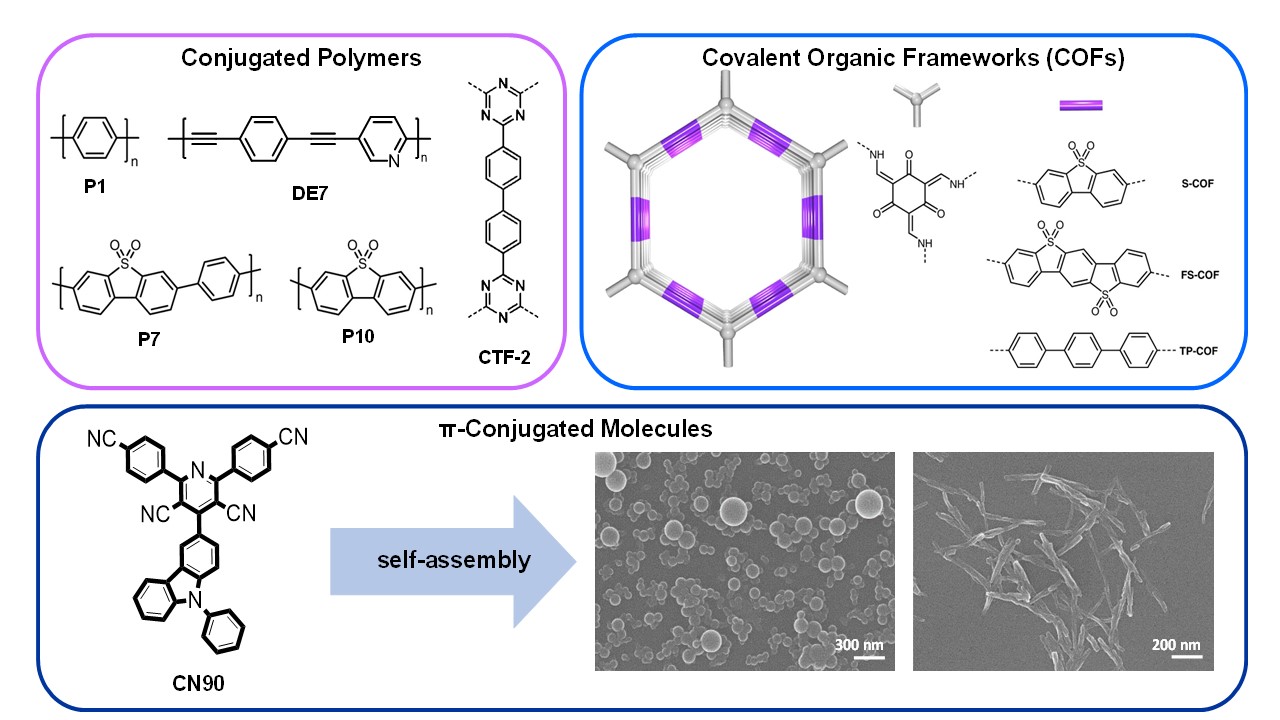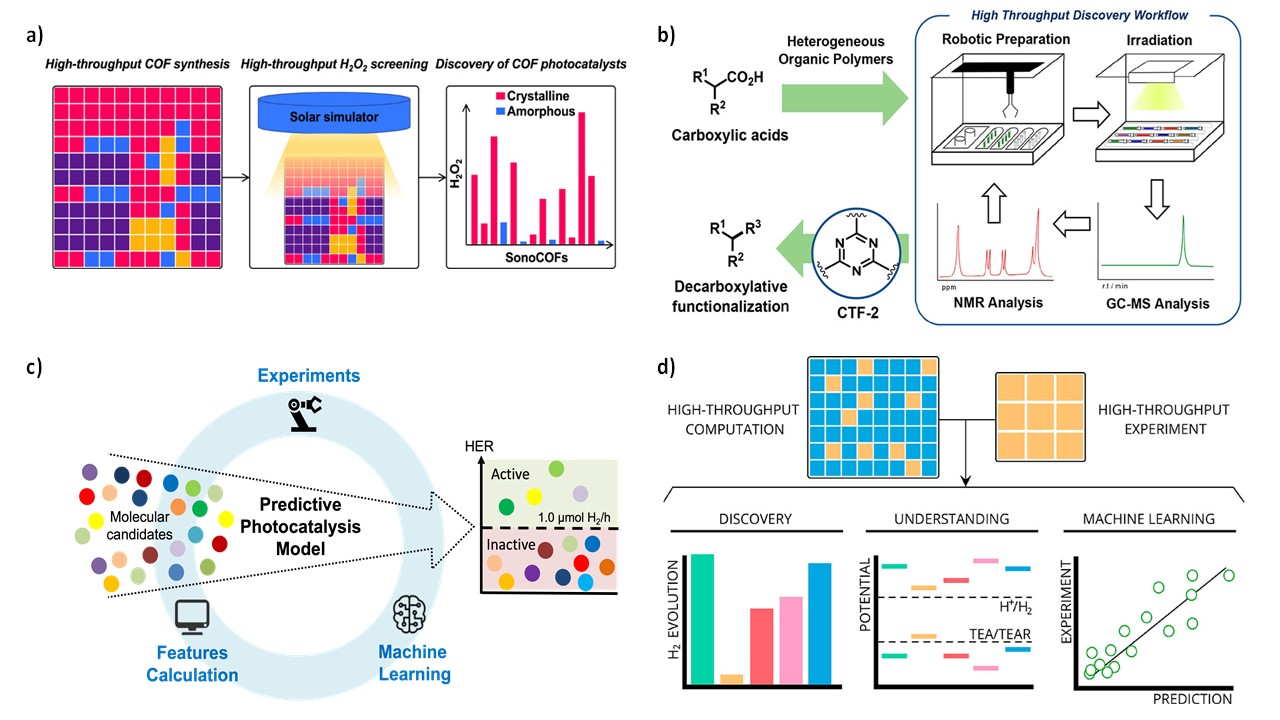Photocatalysis
The design and synthesis of new organic photocatalysts has been an active area of research in the Cooper Group for over 10 years. During this time, we have explored a range of functional materials as photocatalysts, such as conjugated polymers, covalent organic frameworks (COFs), π-conjugated molecules and biohybrids. We have mainly focused on optimising these materials for use in the production of solar fuels (hydrogen, hydrogen peroxide, overall water splitting and CO2 reduction), but have also investigated their use for photocatalytic organic transformations.
To accelerate the discovery of new materials, we have combined machine learning and high-throughput computational chemistry with high-throughput synthesis and recently, automation.

Examples of different materials classes used to develop organic photocatalysts in the Cooper Group:
- Conjugated polymers for hydrogen production (P1, P7 and P10)
- Hydrogen peroxide production (DE7)
- Organic transformation (CTF-2)
- COFs for hydrogen production (S-COF, FS-COF and TP-COF)
- π-Conjugated molecules for hydrogen and hydrogen peroxide production (CN90).

Examples of how high-throughput experimental and computational methods have been used to discover new photocatalysts:
- COFs for hydrogen peroxide production (a)
- Conjugated polymers for organic transformations (b)
- π-Conjugated molecules for hydrogen production (c)
- Conjugated polymers for hydrogen production (d).
Autonomous chemistry for polymer discovery
The majority of chemicals currently used in consumer products (such as shampoo and laundry detergents) are derived from virgin petrochemicals and many are not biodegradable. Unilever has a strategic target to replace its current formulation ingredients with non-petroleum sourced materials designed for environmental degradation. Currently, its suppliers cannot supply this type of material in sufficient quantity. The Prosperity Partnership is a collaboration between Unilever, the University of Liverpool and the University of Oxford. This partnership aims to address how to achieve the UK Government's 2019 target of zero by 2050, through disruptive innovation in the current chemical supply chain.
For more information, see the Clean Future Prosperity Partnership website.
Our group has two key objectives in this partnership:
- Development of automated and robot-assisted testing methods to evaluate physicochemical properties (e.g., biodegradability, solubility and viscosity) of polymeric materials developed by researchers at the University of Oxford
- The application of model-driven automation to polymer synthesis and properties characterisation.
Back to: Cooper Group